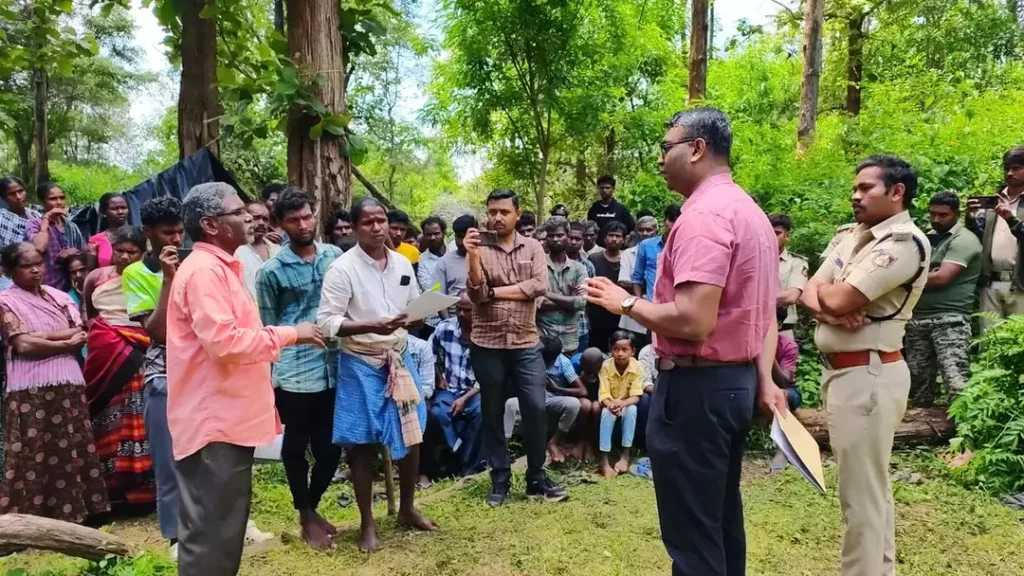
In Nagarahole, Jenu Kurubas Fight to Reclaim Ancestral Land
In a remarkable turn of events, fifty-two Jenu Kuruba families have returned to their ancestral land in Karnataka’s Nagarahole Tiger Reserve, decades after they were evicted under the Wildlife Protection Act of 1972. This is a testament to the unwavering determination of the indigenous community to reclaim their rights and ancestral land. The Jenu Kuruba tribe, also known as the “Honey Gatherers”, have been fighting for years to assert their rights under the 2006 Forest Rights Act, which recognizes the rights of indigenous communities to their traditional lands.
The story began on May 5, when the Jenu Kuruba families started rebuilding their village on the ancestral land that was once taken away from them. This move was met with resistance from the authorities, who reportedly began a fresh crackdown on the community. The evictions, which were carried out in the 1970s, were done under the pretext of conservation efforts. However, the Jenu Kurubas argue that they were not consulted or informed about the evictions and that their rights to the land were not respected.
The 2006 Forest Rights Act, which was enacted to recognize the rights of indigenous communities to their traditional lands, was seen as a major victory for the Jenu Kuruba tribe. The act recognizes the rights of indigenous communities to forest resources, including the right to live in their traditional habitats. The Jenu Kurubas, who have been living in Nagarahole for generations, argue that they have a deep connection with the land and that their way of life is intertwined with the forest.
Despite the passage of the Forest Rights Act, the Jenu Kurubas’ efforts to reclaim their land were met with resistance from the authorities. The community’s appeals reportedly fell on deaf ears, and they were forced to continue their fight for years. However, their determination and resilience have finally paid off, and they have been able to return to their ancestral land.
The Jenu Kuruba community has been living in Nagarahole for generations, and their way of life is deeply rooted in the forest. They are known for their expertise in hunting and gathering, and they have a deep connection with the natural world. The community’s traditional practices are centered around the forest, and they believe that their way of life is under threat due to the encroachment of modern society.
The Jenu Kurubas’ fight to reclaim their land is not just about their rights to ancestral land, but also about their way of life. They are fighting to preserve their traditional practices and way of life, which are under threat due to the encroachment of modern society. The community’s struggle is also a testament to the importance of recognizing the rights of indigenous communities and preserving their cultural heritage.
The Jenu Kuruba community’s return to their ancestral land is a significant step forward in their fight to reclaim their rights. However, the community’s struggle is not yet over, and they still face many challenges. The authorities have reportedly begun a fresh crackdown on the community, and the Jenu Kurubas are facing threats to their safety and well-being.
Despite the challenges, the Jenu Kuruba community remains determined to fight for their rights. They are supported by various organizations and individuals who are committed to their cause. The community’s struggle is a reminder of the importance of recognizing the rights of indigenous communities and preserving their cultural heritage.
In conclusion, the Jenu Kuruba community’s fight to reclaim their ancestral land in Nagarahole is a testament to their determination and resilience. The community’s struggle is not just about their rights to ancestral land, but also about their way of life and cultural heritage. The Jenu Kurubas’ story is a reminder of the importance of recognizing the rights of indigenous communities and preserving their cultural heritage.




